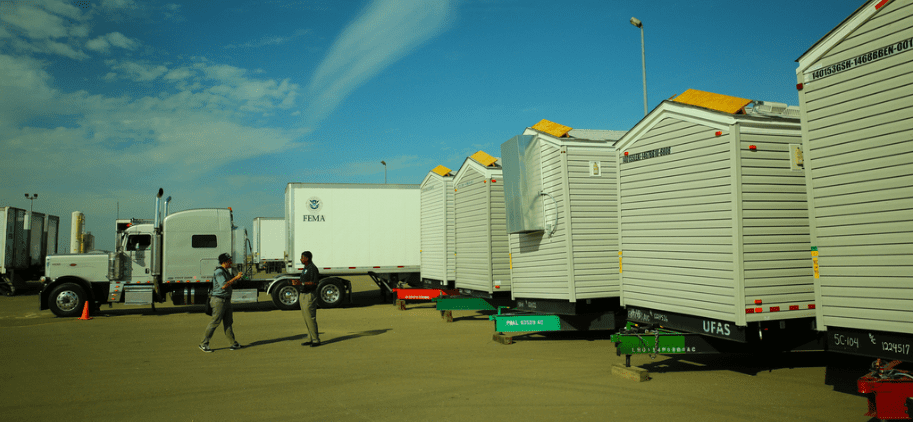In case you didn’t know it, mobile homes are not exactly easily moved. Moving a mobile home is a task for the professionals due to the sheer size of such a home. Also, the care to move it without inflicting damage on the home is another factor that requires professional assistance.

So in a sense – no, they’re not very mobile. As a matter of fact, due to the process involved in relocating a mobile home, moving again will usually not take place after the first time.
And because the moving of your mobile home involves so many safety factors, you’ll find that there are laws on moving a mobile home. It’s important that you understand these laws.
The laws on moving a mobile home
There are some basic laws on moving a mobile home. We’ll be giving you a rough overview of these laws and how you can look them up in more detail according to your state.
Laws that are applicable to you
First of all, we need to explain that expectations will vary from state and county government to state and county government. This is because of the different facets involved in each locale. Every area is different, so the local government will emphasize some things as being more or less important than others.
You would do well to reach out to your local HUD Code Agency. This office will know exactly who you need to speak to as far as instruction goes on how to proceed with moving a mobile home.
Authorization and inspection before moving
Before you can get that home out off that rented lot or private land, you need to get authorization. A certified inspector will need to come in, go through your mobile home, and give you the authorization to relocate your mobile home.

They’ll know what to look for in seeing whether your home can be safely moved. Due to the nature of moving such a large work of construction on the roadways, this is an important and required step.
Inspection after the mobile home is moved
Once your mobile home is on the new lot or private property, it is imperative you seek out an inspection. This is according to the laws on moving a mobile home. The certified inspector will see that your mobile home is in good shape after the move.
Certificate of occupancy
After your mobile home passes inspection, you will receive a certificate of occupancy. You will need this certificate in order to connect utilities and move into your home.
If your home does not have a certificate of occupancy, utility companies will not agree to connect your home to basic utilities. That being said, passing inspection is an important step!
Some homes made before a certain year can’t relocate into particular locales without permission. Your mobile home will not pass inspection nor will it be acceptable in your location if it is too old. It’s best to do the legwork on research before spending the money to relocate it.
Zoning requirements
Did you know that mobile homes are specifically built for certain zones?

For example, a location that requires sturdier zone three wind resistance will not hold a mobile home built for zone one.
A certified inspector will not approve your home for occupancy if it does not meet construction standards for that locale.
These certified inspectors are also responsible for ensuring that your mobile home’s installation meets government standards.
What to look for in a company that moves mobile homes
Your home is a big investment. You need professionals that will be careful and safe in how they move your home.
Look for licensed companies with experiences in moving large homes. Insurance is also a must, in the event something should go awry.
Equipped professional mobile home moving companies can inspect the home. This inspection takes place before and after installation. They should also be able to get the necessary permits for relocating the home.
In addition to transporting the home, the moving company you choose must be able to disconnect utilities from the home before relocating it.
Understand and practice the laws
In short, the laws on moving a mobile home should not intimidate you. With the right professionals on board and a phone call or two, you’ll be up and moved in no time at all.
Now that you’re about ready to move your mobile home, here are a few things you should think about when setting up on land you own or rent.


